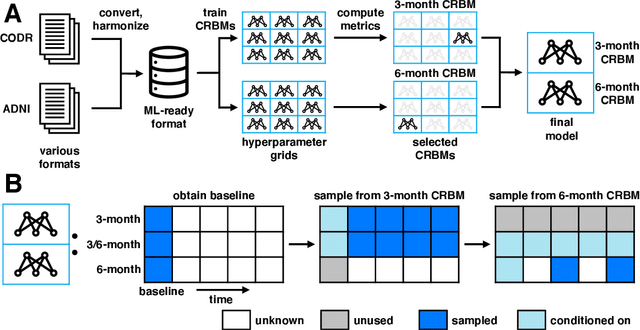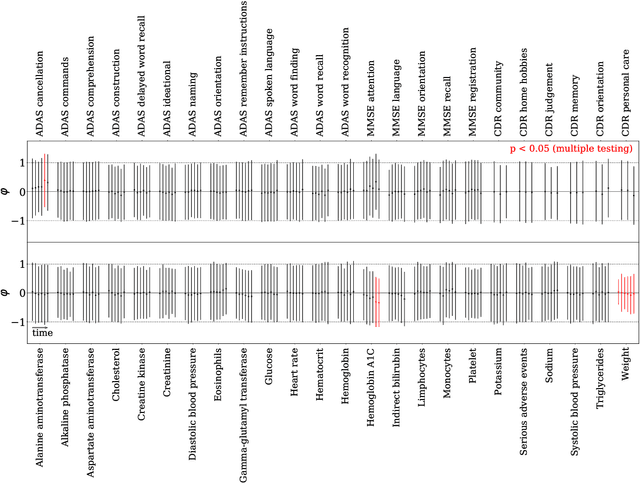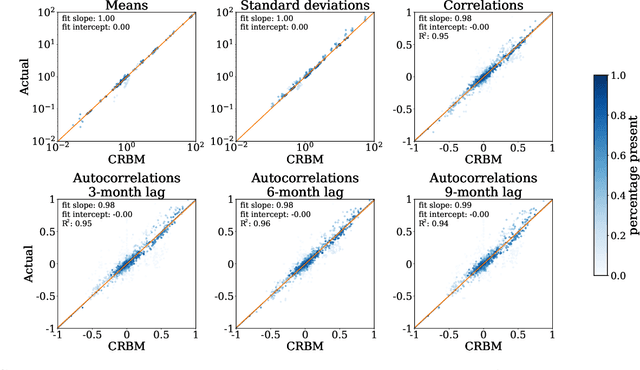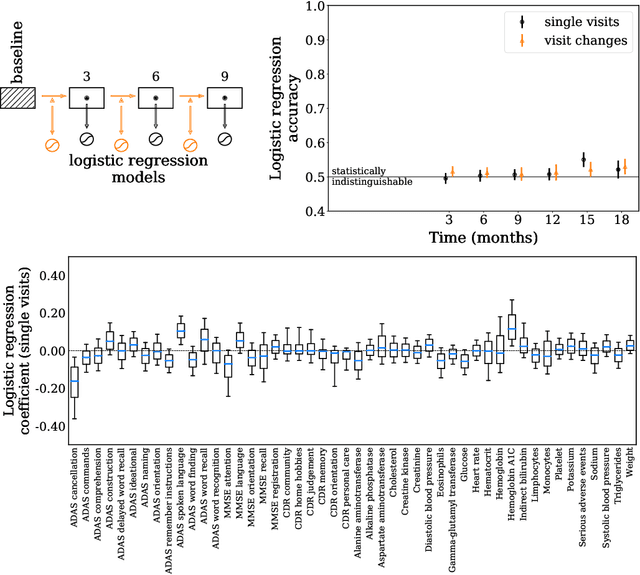Anton D. Loukianov
Neural Boltzmann Machines
May 15, 2023Abstract:Conditional generative models are capable of using contextual information as input to create new imaginative outputs. Conditional Restricted Boltzmann Machines (CRBMs) are one class of conditional generative models that have proven to be especially adept at modeling noisy discrete or continuous data, but the lack of expressivity in CRBMs have limited their widespread adoption. Here we introduce Neural Boltzmann Machines (NBMs) which generalize CRBMs by converting each of the CRBM parameters to their own neural networks that are allowed to be functions of the conditional inputs. NBMs are highly flexible conditional generative models that can be trained via stochastic gradient descent to approximately maximize the log-likelihood of the data. We demonstrate the utility of NBMs especially with normally distributed data which has historically caused problems for Gaussian-Bernoulli CRBMs. Code to reproduce our results can be found at https://github.com/unlearnai/neural-boltzmann-machines.
Modeling Disease Progression in Mild Cognitive Impairment and Alzheimer's Disease with Digital Twins
Dec 24, 2020



Abstract:Alzheimer's Disease (AD) is a neurodegenerative disease that affects subjects in a broad range of severity and is assessed in clinical trials with multiple cognitive and functional instruments. As clinical trials in AD increasingly focus on earlier stages of the disease, especially Mild Cognitive Impairment (MCI), the ability to model subject outcomes across the disease spectrum is extremely important. We use unsupervised machine learning models called Conditional Restricted Boltzmann Machines (CRBMs) to create Digital Twins of AD subjects. Digital Twins are simulated clinical records that share baseline data with actual subjects and comprehensively model their outcomes under standard-of-care. The CRBMs are trained on a large set of records from subjects in observational studies and the placebo arms of clinical trials across the AD spectrum. These data exhibit a challenging, but common, patchwork of measured and missing observations across subjects in the dataset, and we present a novel model architecture designed to learn effectively from it. We evaluate performance against a held-out test dataset and show how Digital Twins simultaneously capture the progression of a number of key endpoints in clinical trials across a broad spectrum of disease severity, including MCI and mild-to-moderate AD.
 Add to Chrome
Add to Chrome Add to Firefox
Add to Firefox Add to Edge
Add to Edge